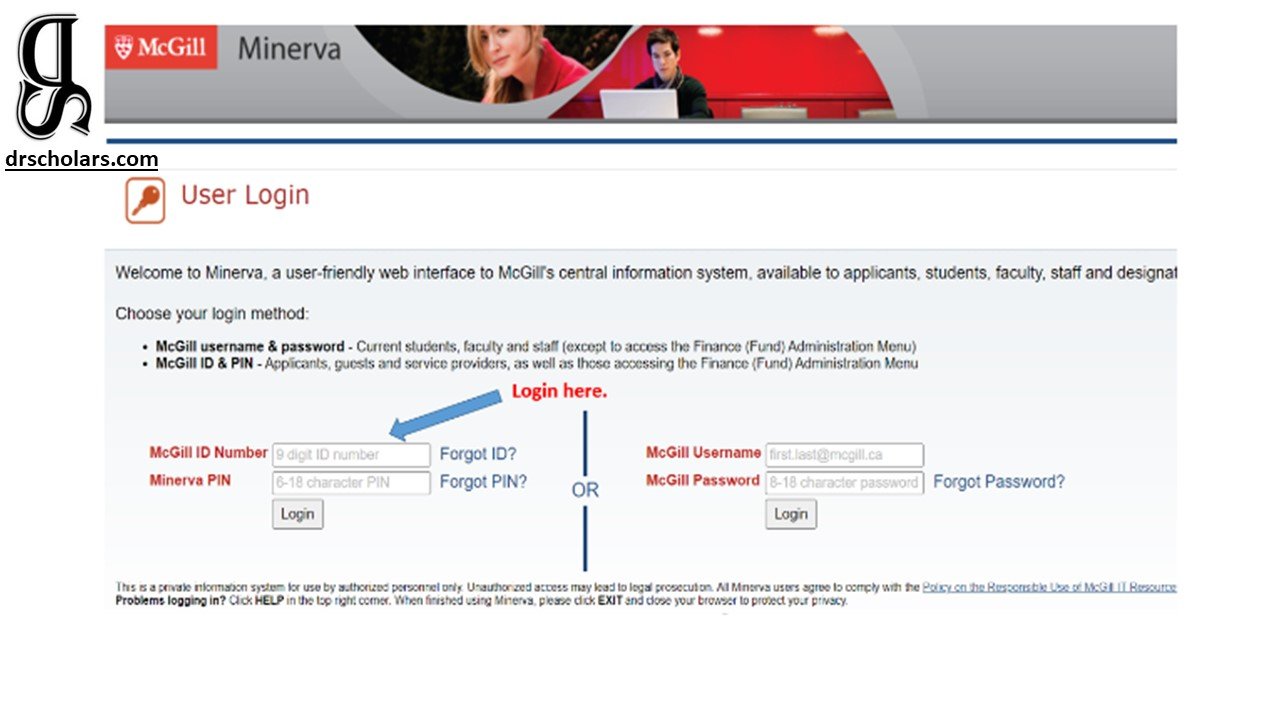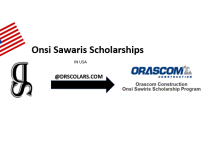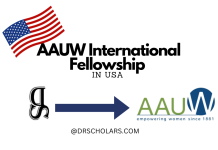Are you dreaming of studying in Canada? If yes, then you are at the right place! Today, we will talk about the McGill University scholarships in detail which will include the process of application, benefits, eligibility criteria, and much more!
The programs are offered in undergraduate, master’s, and Doctoral studies.
These scholarships and financial aid will ensure that students from many geographic regions will be supported financially in fulfilling their goals and completing their academic education at McGill University.
Overview of McGill University
McGill University is Canada’s top institution of higher learning and is also ranked #27 by QS world rankings. Established in 1821, it is a public research university in Montreal, Quebec, Canada.
150 different nations international students are studying at McGill’s university which makes it a university with a large and diverse population.
It is one of Canada’s major academic institutions, with around 40,000 students enrolling each year.
The university offers around 300 graduate and undergraduate programs, as well as 11 faculties and 13 professional schools.
McGill University Scholarships
1. McGill University scholarships for International students
2. Programs available at McGill University
3. Eligibility criteria for McGill University scholarships
4. Which documents are required for the McGill University scholarship?
5. How to apply for a McGill University scholarship?
6. What are the deadlines for the McGill University scholarship?
7. FAQs about McGill University scholarships
Read this guide to solve your every query about a Canada study visa for Pakistan.
1. McGill University scholarships for International students
1.1 McGill University Scholarships for Undergraduate Students
1.2 McGill University Scholarships for Graduate Students
1.3 McGill university Scholarships for Postdoctoral students
1.1 McGill university scholarships for Undergraduate students
McGill University offers scholarships and financial aid programs for both current and future undergraduate students.
These scholarships include the Entrance Scholarship program, in-course financial programs, and need-based scholarship programs.
For first-year or first-degree undergraduate students who have been accepted into the university recently are eligible to apply for the McGill Entrance Scholarship Program.
This scholarship is purely based on merit and is available to high school/college students who are entering a full-time undergraduate degree program.
Those with a good academic record have a high chance of getting selected in this scholarship. During the last admission cycle, the Scholarships Office disbursed over $7 million in entrance scholarships alone.
Entrance scholarships are not available for transfer, diploma, mature, exchange, part-time, special, or visiting students.
There are two types of McGill University entrance scholarships which are One-year Scholarships and Major scholarships.
One-year Scholarships: Valued at $3,000 and applicants should meet the minimum academic requirements as well.
No separate application is required for this scholarship as it is purely based on your academic records.
However, you need to submit all your grades and interim grades that you got up to the application deadline date.
Major Scholarships: Valued between $3,000 and $5000 to 3 or 4 years. You need to fill out a separate application right after your admissions application.
Note: Check all the regulations before applying for McGill University entrance scholarships and Major scholarships.
1.2 McGill university scholarships for Graduate Students
McGill University also provides a variety of scholarships and financial aid options specifically for current undergraduate students.
These in-course scholarships are administered by individual faculties and are awarded based on exceptional academic performance in the previous academic year.
The McGill’s Scholarships and Student Aid office also offers need-based financial aid to undergraduate students.
This assistance is specifically tailored to students who demonstrate a genuine need for financial support.
The aid provided can include bursaries, loans, and work-study programs.
There are two types of scholarships offered for Graduate students which are the In-course Financial Aid Scholarship and the McCall MacBain Scholarship at McGill University Canada.
In-course Financial Aid Scholarship is provided to specific currently enrolled students and they are in the form of loans or bursaries to the students in need of Financial assistance in completing their education.
This Scholarship is only available to first-time, first-degree (Bachelor) students.
1.3 McGill university scholarships for Postdoctoral students
McGill University offers several postdoctoral scholarships for international students to study in Canada.
These scholarships include the Differential Fee Waivers (DFWs) and external funding opportunities that are mentioned in this link.
What are the Benefits of the McGill University scholarship?
The benefits of the McGill University Canada scholarship include:
- The McGill University scholarship will cover up to $8500 CAD on tuition fees, living expenses, and other fees.
- A monthly stipend of $2000 CAD is offered to international students.
Check a fully funded Mccall Macbain scholarship in Canada.
2. Programs available at McGill University
Check all the programs being offered at McGill University.
McGill University official website > Admissions > Find the program in your degree > Click the program and see details
Study in Canada with the University of Waterloo scholarships.
3. Eligibility criteria for McGill University scholarships
To be eligible for McGill University Scholarships, applicants must meet the following criteria:
- IELTS is compulsory.
- All countries are eligible to apply for this scholarship.
- Applicants must be enrolled in a full-time degree program at McGill University.
- The minimum overall grade point average (CGPA) in the last two years of full-time study is 3.0 out of a possible 4.0 or 3.2 out of a 4.0-grade point average (GPA). However, some areas require a higher CGPA for admission.
Consult your program requirements for details. To know more about the grades and transcripts, please see McGill’s Admission site. - Students must apply for financial aid, including government student aid or other supporting funds.
- Students must apply for and accept the maximum available student aids for which they meet the eligible requirements.
- The student should have a satisfactory academic record.
Study in Canada with the University of Manitoba scholarships.
4. Which documents are required for the McGill University scholarship?
4.3. Valid passport, Birth certificate & NIC
4.4. English Proficiency (IELTS/TOEFL) for McGill University scholarship
4.5. Recommendation letters / Letters of References
4.8. Hope certificate (If applicable)
4.9. Research Plan / Proposal (Optional)
4.10. Statement of purpose or Letter of Motivation for McGill university scholarships
4.1. Academic documents
This includes all your certificates & academic record:
A: Bachelor’s transcript & certificate
B: Master’s transcript & certificate (if the student is applying for 2nd Master’s or fellowship)
C: Metric & FSC transcripts (10-12th Grade) (A level) (DMCs) and certificates (Supporting academic documents)
D: Course summary (to explain your courses & how your previous courses & studies resemble your future studies to which you are applying)
NOTE:
All of the above documents should be attested by respective boards.
Also, attest them from issuing authority of home countries. The respective university must attest university documents.
In the case of Pakistan, The above-mentioned documents must be attested by IBCC, HEC, and MOFA (Ministry of Foreign Affairs).
IBCC authority is only responsible for the attestation of metric and inter documents.
Dear offices are present in Peshawar, Karachi, Lahore, Islamabad, and also in other cities of Pakistan.
HEC office attests to bachelor’s, master’s, and Ph.D. documents.
4.2. Additional requirements
You will need to give the following specific information at the time of application:
4.2.1. For undergraduates:
- A summary detailed of school activities and any volunteer activities you did during your academic years( including arts, athletics and any other extracurricular activities).
- An essay about a historical or contemporary who inspired you, or a worth mentioning event/experiment that changed your life.
- A letter of recommendation in one page for yourself in third person.
4.2.2. For Graduates:
- You will be asked to schedule a meeting with a Financial Aid Counsellor. During this meeting, you will not only be able to discuss your budget but your in-course application will also be thoroughly reviewed. Find out how you can optimize your financial aid appointment.
4.2.3. For PhD:
- Identify a McGill University academic member whose research interests you and contact them directly to discuss prospective postdoctoral possibilities. Before beginning the application procedure, it is critical to get an agreement with a supervisor.
- Fill out the postdoc registration form. Both you and your supervisor must sign the paper. Include a copy of the Postdoctoral Education Letter of Agreement (LofA), signed by all parties involved (postdoc, supervisor, chair/unit head). You must also include copies of your transcripts.
- Send the finalized postdoctoral application and all needed documents to your McGill academic department for approval. If you are in Category 3, you must provide a Letter of Permission signed by a responsible official at your home institution.
- McGill University requires adequate financial support for postdoctoral registration. Ascertain that you have sufficient financing for the term of your postdoctoral employment.
Note: To be eligible for a Scholarship, you must submit a new application (through Minerva) and other supporting documentation.
4.3. Valid passport, Birth certificate & NIC
- The passport of the applicant must contain at least one full blank page on both sides.
- The passport must be valid at the time of visa application and on arrival to Canada.
- A birth certificate or national ID card is also important to attach.
Want to study in the USA for free? Check our ultimate guide about YALE Scholarship USA.
4.4. English Proficiency (IELTS/TOEFL) for McGill University scholarship
Meeting the English language requirements set by McGill University scholarship is an important step toward achieving your bigger goal.
- TOEFL (Test of English as a Foreign Language): minimum acceptable scores are:
The CBT is no longer being offered. CBT results will no longer be accepted as ETS no longer reports these results.
N.B. an institutional version of the TOEFL is not acceptable.
IBT (Internet-Based Test): 86 overall, no less than 20 in each of the four component scores.
- IELTS (International English Language Testing System): a band score of 6.5 or greater (Academic module).
Nevertheless, these requirements may vary from course to course and degree to degree.
4.5. Recommendation letters / Letters of References
The applicants must provide up to 3 letters of recommendation. from the previous university, (Depending upon courses).
It is advised to provide a letter of recommendation from the HOD (Head of the department or Relevant course head) who should be a PhD.
The referees need to write their contact details (Email, phone number) at the end of the letter.
The letter must include an official letterhead, signature, and official stamp and must be of the current date.
Ask your Referees to write about your academic achievements & discuss their confidence in you that you are fully compatible with the project or course you wish to pursue.
The referees must also mention how long they know the applicant & when was the last time they came in contact with the applicant.
After submitting your application, the referee will be contacted directly through email.
If you want to study in the UK for free, find out our detailed guides about Chevening and Commonwealth scholarships.
4.6. CV
Europass CV can be easily made here.
The Cv must contain all the latest & relevant information about your occupation & interests.
A perfect CV must be hand signed.
4.7. GRE Score
The GRE score must be 145 in accordance with the new scoring system. The score must be much higher in subjects related to your academic field.
For example, Students with engineering backgrounds must have good scores in Physics, chemistry, etc while students of Social science and humanities must have good scores in Verbal subjects.
Note: You can apply for the reimbursement of the GRE fee if you get shortlisted and have an outstanding GRE Score.
4.8. Hope certificate (If applicable)
If the final transcript isn’t ready then students can apply with a Hope certificate from their university.
However, they must graduate before their arrival in Canada.
(Please make sure you contact your university in this regard )
What is Hope’s certificate?
In simple words, It is a certificate based on the previous semester’s performance, that indicates that the candidate will pass the final exams with excellent results.
4.9. Research Plan / Proposal (Optional)
Research publications/ Achievements (conference papers, article review, abstract of thesis)
The research proposal is mostly required for postdocs or Ph.D. students. (Depend upon the courses)
It asks you to write about the research project you agree upon completing with the assigned academic advisor.
Your research proposal should be a brief description of your research goals and objectives, the methods with which you wish to process that research, the outcomes you desire, the timeline and budget you have estimated, and the area of study you wish upon exploring.
It shall be a brief document yet explain the entire vision to the reader so that those analyzing your application could know of your objectives and grant you the scholarship if they match the program’s criteria and eligibility.
Taking help from an external party is strictly prohibited and violation in this regard could lead to your disqualification no matter how incredible your proposal is.
4.10. Statement of purpose or Letter of Motivation for McGill university scholarships
Technically SOP (Statement of purpose) and LOM (Letter of Motivation) are the same things.
It’s a Short biography to tell the panelist about yourself:
A letter of motivation or SOP could be a tricky part while applying for McGill University.
In this letter, you are asked to write about your personal and professional reasons why you are applying for a course & scholarship.
The maximum length of this letter is three pages, But it is advised to make it short & concise to one page.
How to write a perfect letter of Motivation?
If you are interested in writing your LOM on one page concisely, then follow this exact method.
LOM consists of three parts.
Introduction (one paragraph)
Body (3 paragraphs)
Conclusion (1 paragraph)
Let’s explain these three things one by one.
4.10.1. Introduction:
Introduction is the gateway to the rest of the letter. Try to capture their interest in the first few sentences. Be original & creative.
Make it personal & full of enthusiasm.
TIP: Try to initiate a story about yourself relevant to the scholarship you are applying & then expand it to the first paragraph of the body.
4.10.2. Body:
In the first paragraph of the body, try to tell about your relevant academic & experienced background to the course and your professional goals attached to Canada and the university. Share your expectations of the scholarship.
In the 2nd paragraph be more precise & focus on the specific achievement related to the scholarship & course.
In the 3rd paragraph expand on what you are currently doing & the interesting things you look forward to.
4.10.3. Conclusion:
Tell them why you are the best candidate for the McGill University Scholarship. Don’t sound needy or use pompous language instead focus on why you deserve it.
Tell them how this scholarship will help you or the future of your community.
4.11. Experience letter
Applicants must provide an Experience letter from previous jobs & Internships.
Try to customize the work experience letter with future studies.
Mention your job descriptions, work projects & the skills you learned through time.
The letter must be signed & verified by the Head or CEO of the company.
The work experience could be Paid,
Unpaid,
full-time,
part-time, or voluntary.
It could be done before, during, or after graduation.
If you want to study in Germany for free, find out our detailed guide about DAAD scholarship.
4.12. Portfolios or workshop
It’s optional. But students can attach portfolios or workshops to support their cases for university admission or scholarship.
Check a fully funded Mccall Macbain scholarship in Canada.
5. How to apply for McGill University scholarships?
5.1. Apply to the McGill University
5.2. Prepare the documents
5.3. Fill out the Scholarship form at Minerva
McGill University application shortcuts:
McGill University official website > Admissions> Choose the degree you want to apply for > Choose the desired field> Click on apply now> Fill out the application form> Check your email for Minerva id> Fill out the scholarship form at Minerva.
Here is the step-by-step process to apply for a McGill University scholarship:
5.1. Apply to the McGill University
To apply for a McGill University scholarship you need to first apply for the McGill University and then apply for the scholarship.
For applying to McGill University, you need to follow the following steps:
First, visit this link and create an account as an applicant.

5.2. Prepare the documents
Prepare all the documents with the necessary attestation as discussed above. Make sure to read the eligibility criteria properly.
Some additional documents might also be asked by the respective university after the submission of the application.
5.3. Fill out the Scholarship form at Minerva

- As soon as you submit the application for admission to McGill, then you will get an email appreciating the application. The mail will also include your:
- McGill ID number
- PIN used to log on to Minerva,
- Now, Log in to Minerva and go to Applicant > Apply for the scholarship you want to. You can see this sample preview of the application form (PDF). For those who applied to law, they won’t receive any PIN to login to Minerva.
- Your referees or school administration must email your reference letters (and, if available, statements of rank) to scholarships@mcgill.ca (quoting your McGill ID number). These documents must include:
- It should be typed on official letterhead stationery.
- It should be signed and converted to PDF.
After the submission of the application, applicants are checked by members of the selection committee which will finalize the selected candidates. After that, the finalists will be interviewed.
6. What are the deadlines for McGill University scholarships?
The deadlines for the McGill University scholarship 2023/2024 are as follows:
| Application opening Date | Application deadlines | ||
| Term | All applicants | Non-Canadian (i.e., international) | Domestic applicants (i.e., Canadian citizens/Permanent Residents of Canada) |
| Fall | September 15 | January 15 | June 21 |
| Winter | February 15 | August 1 | November 10 |
| Summer | May 15 | October 1 | April 1 |
7. FAQs about McGill University scholarships
7.1. How much GPA is required for a McGill University Scholarship?
A: A minimum of 3.0 out of 4 GPA is required for applying to graduate programs at McGill University.
7.2. How much does McGill cost for international students?
A: International student tuition at McGill University is among the highest in the country, with fees that sometimes approach $50,000 per year.
7.3. Does McGill University require SAT for Undergraduate students?
A: McGill requires applicants with a US high school diploma to submit ACT or SAT scores by the stated deadline.
Minimum ACT composite and section scores for each program, as well as SAT exam scores, are determined annually for admission.
7.4. Is IELTS compulsory for McGill University?
A: International applicants must take the IELTS (International English Language Testing System) – Academic version to demonstrate English language ability.
The standard Academic test and the UKVI (UK Visas and Immigration) version are both accepted by McGill University.
Applicants must have at least a 6.5 overall band score, with a 6.0 or above in each individual component.
Both the standard Academic test and the UKVI test are accepted to fulfill this prerequisite.
7.5. What are some of the undergraduate scholarships available at McGill University?
A: McGill offers an Entrance Bursary Program, an In-Course Financial Aid Program (loans and bursaries) as well as a Work Study Program that is based on financial need.
They also offer an extensive Entrance Scholarships Program which is based on academic needs.
8. Conclusion of McGill University scholarships
The McGill University scholarship is just like a dream come true for those students who were wishing to complete their studies in Canada. The universities in Canada are one of the two ranked universities in the world with excellent facilities and infrastructure.
This scholarship will cover the complete accommodation charges, monthly allowances, and tuition fees with a monthly stipend of about $2000 per month.
So, just don’t get too late before catching on to this fantastic opportunity to study in Canada! Apply now.
We cover everything in detail, but if you still have any questions, don’t hesitate to ask us in the comments.











